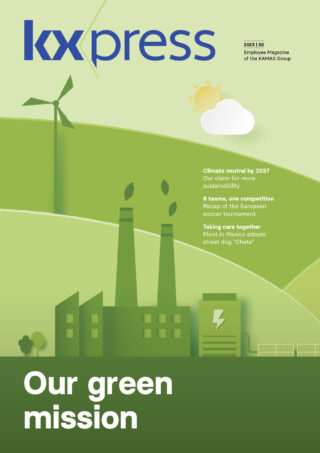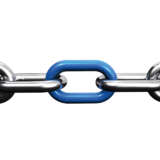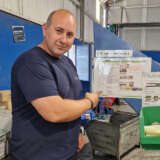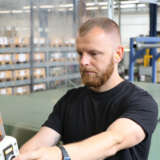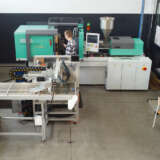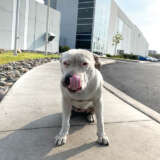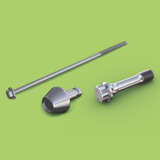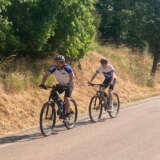Becoming more inclusive
Some of our colleagues face challenges in their day-to-day work that others cannot imagine since their disabilities limit their physical abilities. We spoke to some of them to see how inclusion works at our plants in Homberg and Museros.
Inclusion means ensuring everyone can be autonomous in their lives and work – even with limitations. Many countries like Germany and Spain have statutory regulations regarding the share of people with disabilities that companies over a specific size must employ: at our Museros plant, for example, this figure is 2%, while it is 5% in Homberg. If these figures are not reached in Germany, companies must pay a compensatory contribution. In Spain, it is possible to obtain external support for inclusion efforts.
Thomas Carli is one of their representatives and has been part of the works council for the severely disabled (SBV) at the Homberg plant for five years. As Carli (59) says with a big smile: “Fighting keeps you young.” And fight he does – for solutions for everyday working. As a member of the Operational Integration Management (BEM) team, he also works to prevent illness and motivate employees to take advantage of BEM programs early.
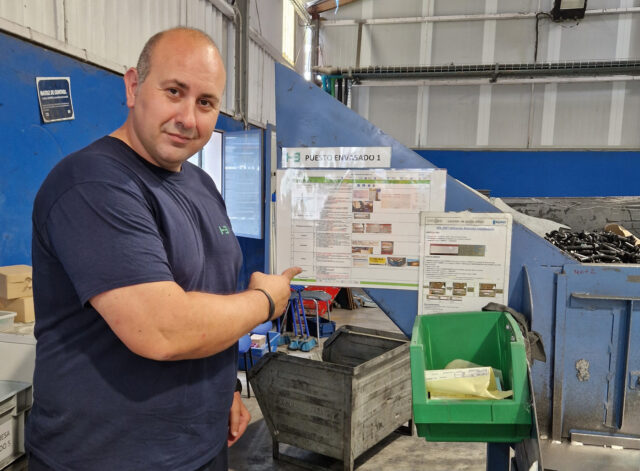
Roberto Sànchez monitors bolts in Museros
Lifting aids for production
Tatjana Laudenbach, BEM Coordinator and Inclusion Officer in Homberg is every bit as passionate about what she is doing: “If a company does not act, there will not be any government aid, and without this aid, major purchases are always at the mercy of the financial situation. So far, I have submitted 18 applications for work aids, including lifting aids for production and much else.” If the authorities approve all these applications, it would amount to a healthy six-figure euro sum. These work aids help to make the workday easier for our colleagues with disabilities.
Since 2016, our plant in Museros has been working in this area with “Talento y Experiencia,” an organization whose primary goal is to help people with disabilities move into their everyday working lives in companies. Employees who need help during their regular working days often suffer from physical disabilities. These can also include ailments that are not readily apparent, such as heart conditions, which make it necessary to adapt the workplace to their needs.

Thomas Carli, represantive of the disabled colleagues in Homberg

Isabel Gòmez, packer and forklift driver in Museros
Sometimes this can involve steps that are really quite simple, such as providing a stool or support for people who must stand for long periods so that they will be able to work full-time. Roberto Sánchez monitors bolts for KAMAX and has difficulty moving his left arm: “Even so, this does not prevent me from typing on a computer or from checking the weight of boxes filled with bolts.” Isabel Gómez works as a packer and forklift driver. Remedies – like the height of the packing table – help to make her working day easier: “In my case, this does not have any impact on my heart condition, but I really appreciate the way that the company helps us so that we do not overexert ourselves in our day-to-day work.”
Support comes in many forms
Thomas Carli is delighted that “these efforts have gained momentum” in Homberg as well because there is still a lot to do even after the aids have been purchased. In one case, for example, the benefits of mobile scales have been called into question on account of the maintenance and repair expenditures. According to Carli: “The mobile scales are in use all day long, day in and day out – it goes without saying that there will be a high level of wear and tear. However, this shortens the distances our colleagues must cover – and saves time as a result – makes it worth it.”
Success stories like those written in Museros and Homberg are exactly what colleagues working for inclusion hope to achieve. Thomas Carli, who has had to overcome numerous ailments, never gives up in the face of adversity. And it’s an attitude that he would like to share with his colleagues: “Don’t let anything get you down!”
KXpress
